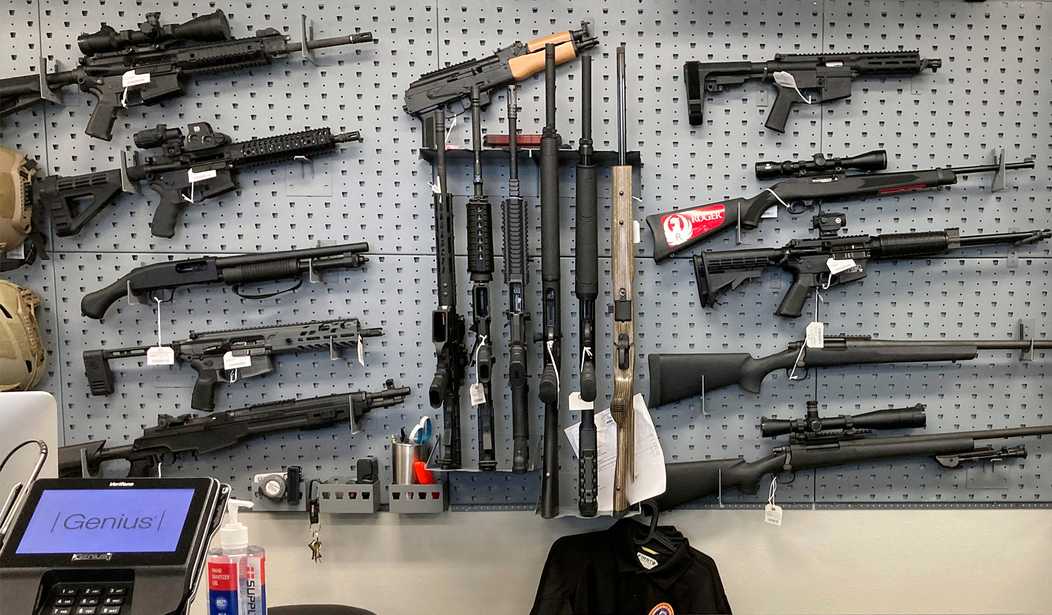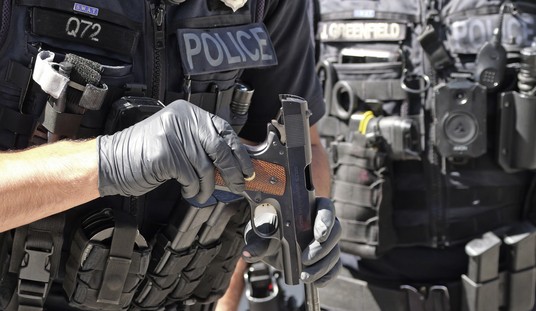The two attempts on President Trump's life, the assassination of Charlie Kirk, the attack on an ICE facility, and a host of other minor incidents have made it clear that political violence is simply a reality here in the 2020s, and it seems to only be getting worse.
Some see it, though, as an excuse for gun control.
In the aftermath of Kirk's assassination, a lot of talking heads muttered vague mentions of gun control, all without any concrete suggestions and without acknowledging that nothing they've demanded for years would have stopped Kirk's alleged killer.
Still, there's always talk afterward, yet as Scott Witner notes at The Truth About Guns, the problem is not now, nor has it ever been, about guns.
No one disputes that America has a violence problem. We see it in daily headlines: mass shootings, political assassinations, riots, and armed robberies. But violence is a human problem, not a firearms one.
Blaming guns for political violence ignores the deeper issue: extremism. We’ve seen attempted assassinations of President Trump, murders of Democrat politicians, and now the killing of Charlie Kirk, all symptoms of a country tearing itself apart politically and culturally.
In the UK, political violence exists too, mass stabbings, synagogue attacks, riots, but the scale is smaller because their weapon of choice is a knife. Yet violence persists because the cause remains the same: broken people acting out of hate, fear, or ideology.
Comparing knife attacks in the UK to shootings in the U.S. misses the point. It’s not about the tool, it’s about intent. Evil doesn’t vanish when you change the weapon; it simply adapts.
And something a lot of people tend to miss while trying to justify gun control by claiming that knife attacks are smaller in scale is that not every shooting leaves dozens dead. Many, even with the super-evil and ultra-scary AR-15, only hurt a handful of people, often not even fatally.
Yet I'll acknowledge that it's possible to have a higher body count with an AR-15 in a short period of time than with something like a knife.
The point Witner makes, though, is that when you focus on the tool, you're ignoring the tool that was using it. The issue is the extremism itself, and that's what we need to focus on.
Unfortunately, the people who most need that lesson, many of the people who want to take the guns, are also the people who celebrated Kirk's murder, thought the ICE shooter was well-intentioned, and lamented that Trump turned his head at the last minute during the first attempt on his life. It seems that they're not all that interested in addressing extremism.
Extremists rarely are for some silly reason.
Yet until we get a rein on that, we're not likely to see the violence subside. From riots in 2020 to assassinations in 2025, the issue is not guns. It's people who think that violent outbursts, not unlike the temper tantrum a small child would throw because he has to take a nap, are the way to get what they want.
And the fact that there's a gap between Trump's two terms sure is likely to make many feel that they're justified in thinking that. After all, didn't Trump get bounced from office in 2020? They don't want to hear anything else except for what their violent inner monologue tells them.
If this continues, and I think it will, they'll try to use this for all kinds of anti-gun measures, but never acknowledge that the problem is that many of those pushing gun control also push the narrative that violence is totally acceptable if it's against people you don't like.
The problem is that sooner or later, they're going to realize that it's not just the left that's listening.







